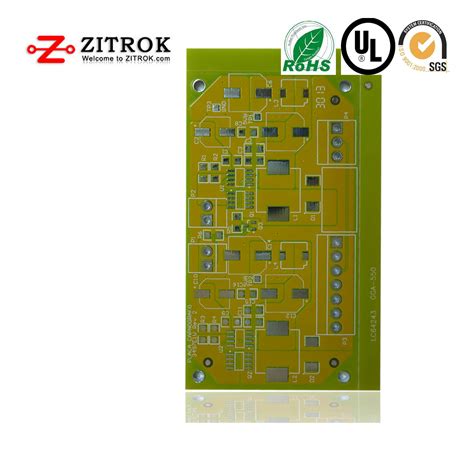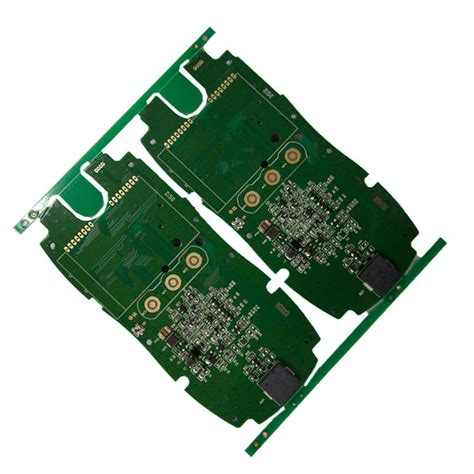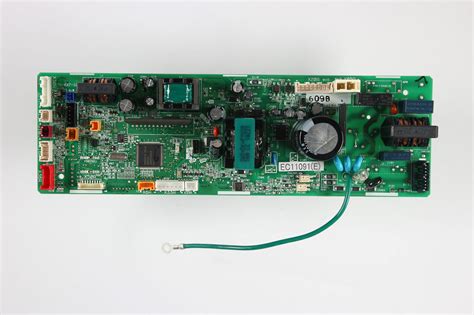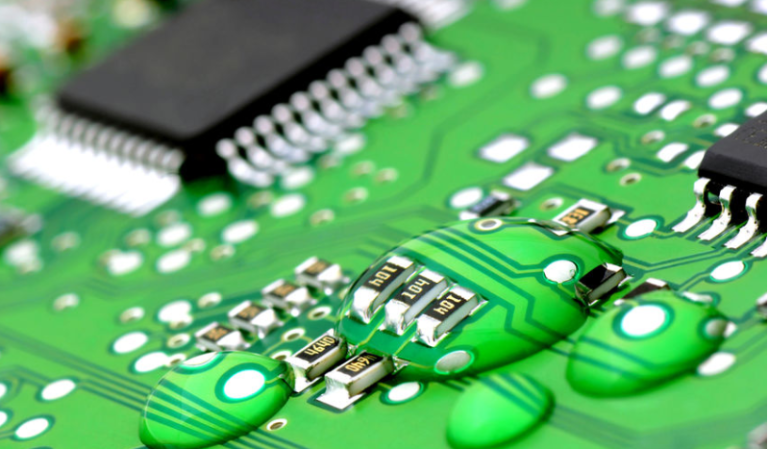Essential Guide to Partnering With Trusted EMS PCB Manufacturers
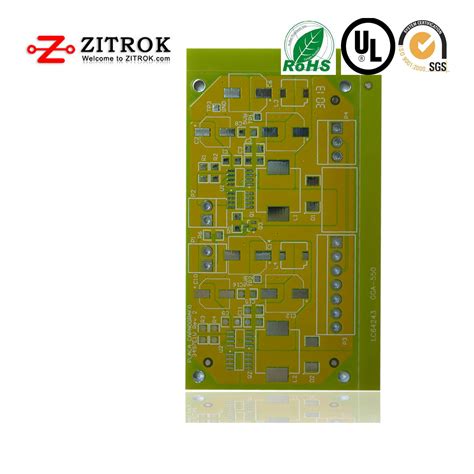
Key Takeaways
When evaluating PCB manufacturing companies, focus on their ability to balance PCB manufacturing cost with quality assurance. Your priorities should align with partners offering scalable solutions for prototyping to high-volume production, as this directly impacts your PCB manufacturing business efficiency. For instance, providers leveraging automated optical inspection (AOI) systems often reduce errors by up to 40%, optimizing both timelines and budgets.
| Process Stage | Traditional Approach | Optimized Approach |
|---|---|---|
| Design Validation | Manual checks | AI-driven simulation tools |
| Component Sourcing | Multi-vendor coordination | Centralized procurement systems |
| Assembly & Testing | Sequential workflows | Parallel processing lines |
Look for transparency in PCB manufacturing workflows, including real-time progress tracking and clear communication channels. Established providers, like those with decades of expertise, often integrate closed-loop feedback systems to refine processes iteratively. This minimizes delays caused by design revisions or component shortages.
Finally, assess how potential partners address PCB manufacturing cost drivers—such as material waste reduction strategies or energy-efficient facilities—to ensure long-term competitiveness. Prioritize collaborators who align their operational benchmarks with your product lifecycle goals.
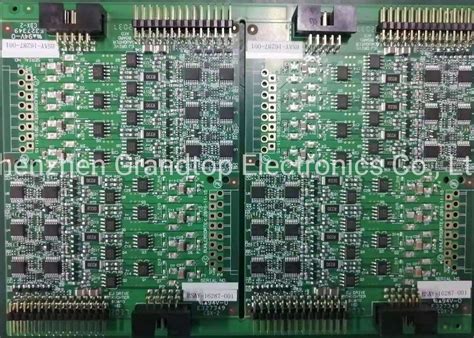
Selecting Trusted EMS PCB Manufacturers
When evaluating PCB manufacturing companies for your project, prioritize those with proven expertise in full-spectrum electronic manufacturing services. Start by verifying certifications like ISO 9001 or IPC-A-610, which signal adherence to industry standards. A reliable partner should offer transparency in PCB manufacturing cost structures, avoiding hidden fees while maintaining quality.
Tip: Request detailed breakdowns of their production workflows to assess how they balance efficiency with precision, particularly in high-volume or complex designs.
Consider their experience in your specific industry niche—whether it’s automotive, medical, or consumer electronics. Established providers often leverage advanced technologies, such as automated optical inspection (AOI), to minimize defects in PCB manufacturing. Additionally, evaluate their scalability; a partner capable of ramping up production during peak demand ensures your PCB manufacturing business avoids bottlenecks.
Communication is critical. Look for companies that provide real-time project tracking and responsive technical support. For instance, firms with dedicated account managers streamline decision-making, reducing time-to-market. Finally, cross-reference client testimonials and case studies to confirm their ability to deliver end-to-end solutions—from prototyping to final assembly. By aligning these factors, you mitigate risks and secure a partnership that drives long-term success.
EMS Solutions’ Manufacturing Expertise
When evaluating PCB manufacturing companies, technical proficiency and operational efficiency are non-negotiable. EMS Solutions’ expertise spans over two decades, refining processes that directly address PCB manufacturing cost challenges while maintaining uncompromised quality. Their facilities leverage automated optical inspection (AOI) systems and surface-mount technology (SMT) lines, ensuring precision component placement with tolerances as tight as ±0.002 inches. This level of accuracy minimizes rework, a critical factor in controlling expenses for your PCB manufacturing business.
By integrating design-for-manufacturability (DFM) principles early in the workflow, they streamline prototyping to mass production, reducing lead times by up to 30%. Such optimization is vital in competitive industries where delays directly impact time-to-market. Additionally, their vertically integrated model—encompassing PCB fabrication, assembly, and testing—eliminates reliance on third-party vendors, further stabilizing PCB manufacturing timelines.
Their commitment to ISO 9001-certified processes ensures consistency, whether you’re sourcing low-volume specialty boards or high-volume orders. For businesses prioritizing scalability, this adaptability transforms PCB manufacturing from a logistical hurdle into a strategic advantage.
Key Factors in EMS Partner Selection
When evaluating PCB manufacturing companies for your project, prioritize partners with proven expertise in scalability and technical adaptability. Start by assessing their PCB manufacturing capabilities—do they support advanced technologies like HDI or flexible PCBs? This ensures alignment with both current needs and future design iterations. Next, analyze their PCB manufacturing cost structure: transparent pricing models, volume discounts, and value-added services like design-for-manufacturability (DFM) reviews can significantly impact long-term budgets without compromising quality.
Certifications such as ISO 9001 or IPC-A-610 compliance are non-negotiable, as they validate adherence to industry standards. Equally critical is their PCB manufacturing business ecosystem—supply chain resilience, component sourcing networks, and inventory management systems minimize production delays. For instance, a partner with established relationships with tier-1 suppliers mitigates risks of material shortages.
Finally, prioritize communication frameworks. Partners offering real-time project tracking and dedicated engineering support streamline collaboration, reducing time-to-market. By balancing technical proficiency, cost efficiency, and operational transparency, you secure a partnership that elevates both product quality and business agility.
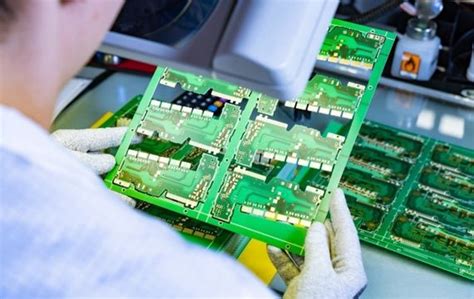
Streamlined PCB Production Processes
When evaluating PCB manufacturing companies, prioritize those demonstrating mastery of lean production methodologies. Advanced manufacturers integrate automated optical inspection (AOI) systems and real-time process monitoring to minimize defects while accelerating throughput. These technologies enable precise control over PCB manufacturing cost by reducing material waste and rework rates. For instance, automated panelization software optimizes substrate utilization, directly impacting your project’s budget scalability.
Leading providers also adopt agile workflows to bridge design and production phases. By validating Gerber files through simulation tools before physical prototyping, they mitigate risks of design-for-manufacturability (DFM) errors. This synchronization is critical when scaling your PCB manufacturing business, as it ensures consistent quality across high-volume orders. Additionally, modular assembly lines allow rapid reconfiguration for mixed-technology boards—from rigid-flex hybrids to HDI layouts—without compromising cycle times.
Finally, transparent communication portals provide visibility into every stage, from raw material procurement to final testing. Such end-to-end traceability not only aligns with ISO-certified standards but also empowers you to make data-driven decisions. By partnering with firms that excel in PCB manufacturing efficiency, you secure faster time-to-market while maintaining margins in competitive markets.
Precision PCB Component Placement
Achieving precision in PCB component placement requires meticulous attention to both design specifications and production execution. When selecting PCB manufacturing companies, prioritize those leveraging advanced pick-and-place systems with optical alignment technology. These systems ensure micron-level accuracy, which is critical for high-density boards with fine-pitch components. Even minor misalignments can compromise signal integrity or lead to thermal inefficiencies, directly impacting PCB manufacturing cost due to rework or yield losses.
Reputable providers integrate automated inspection at every stage, from solder paste application to final assembly. This minimizes human error while maintaining consistency across large-scale production runs. For instance, automated optical inspection (AOI) systems flag deviations in real time, allowing immediate corrections before defects escalate. Such precision not only reduces waste but also accelerates time-to-market—a vital advantage in competitive PCB manufacturing business environments.
When evaluating partners, verify their capability to handle complex layouts, including mixed-technology boards requiring both surface-mount and through-hole components. A seamless workflow between design validation and assembly ensures that your product’s electrical and mechanical requirements are met without compromise. By prioritizing precision, you safeguard product reliability while optimizing long-term PCB manufacturing investments.

Benefits of Full-Service EMS
When evaluating PCB manufacturing companies, opting for a full-service EMS provider simplifies your supply chain while addressing critical aspects of PCB manufacturing cost and quality. By consolidating design, prototyping, assembly, and testing under one roof, you reduce logistical complexities and accelerate time-to-market. Integrated workflows ensure seamless communication between engineering and production teams, minimizing errors that could arise from fragmented processes.
Full-service partners also mitigate risks in PCB manufacturing business operations by offering scalable solutions—whether you need low-volume prototypes or high-volume production. Their expertise in material sourcing optimizes PCB manufacturing expenses, leveraging bulk purchasing power and supplier relationships to lower per-unit costs. Additionally, advanced quality control systems embedded throughout the production cycle guarantee compliance with industry standards, reducing the likelihood of costly rework.
Beyond cost efficiency, these providers enhance flexibility. For instance, design-for-manufacturability (DFM) feedback during early stages ensures your PCB layouts align with production capabilities, avoiding delays. This holistic approach not only safeguards your project timelines but also allows you to focus on innovation rather than operational bottlenecks—a strategic advantage in competitive markets.
Why Trust Established EMS Providers
When evaluating PCB manufacturing companies, partnering with established EMS providers ensures access to proven methodologies that minimize risks in PCB manufacturing. Seasoned providers have refined their workflows over decades, reducing errors that could inflate PCB manufacturing cost or delay timelines. Their expertise in handling complex designs—from multilayer boards to high-density interconnects—translates into consistent quality, which is critical for maintaining your product’s reliability.
Established EMS firms also invest in advanced equipment and certifications (e.g., ISO 9001, IPC-A-610), ensuring compliance with industry standards. This is particularly vital in regulated sectors like aerospace or medical devices, where a single defect can have severe consequences. Additionally, their economies of scale often lead to optimized PCB manufacturing business operations, allowing them to offer competitive pricing without compromising precision.
Another advantage lies in their ability to anticipate challenges—whether material shortages or design flaws—and implement preemptive solutions. By leveraging long-standing supplier relationships, they mitigate supply chain disruptions that newer PCB manufacturing entrants might struggle with. Ultimately, choosing an experienced EMS partner isn’t just about technical capability; it’s about aligning with a collaborator who understands how to balance speed, cost, and quality across your product lifecycle.
PCB Solutions: Industry Leadership
When evaluating PCB manufacturing companies for long-term partnerships, you’ll want a partner with proven expertise and a history of innovation. Established leaders in PCB manufacturing prioritize not only technical precision but also scalability, ensuring your projects adapt to evolving demands. For instance, companies that have invested in advanced automation and lean workflows often achieve tighter control over PCB manufacturing cost, translating to competitive pricing without compromising quality.
A trusted PCB manufacturing business distinguishes itself through certifications like ISO 9001 and IPC-A-610 compliance, which validate adherence to global standards. Look for partners offering end-to-end solutions—from design validation to assembly—since fragmented workflows can introduce delays. Industry leaders also maintain transparent communication channels, providing real-time updates on production milestones.
Finally, consider how a manufacturer’s supply chain resilience impacts your operations. Top-tier providers mitigate risks through dual-sourcing strategies and robust vendor networks, ensuring component shortages don’t derail timelines. By aligning with a leader in PCB manufacturing, you secure not just a supplier but a strategic partner invested in your product’s success.
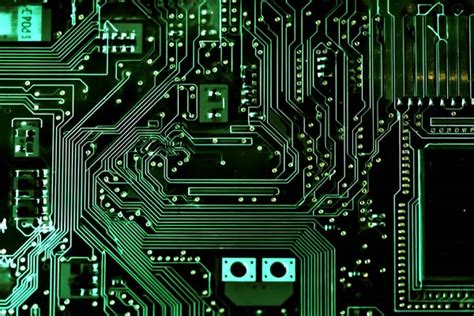
Conclusion
When partnering with PCB manufacturing experts, the final decision hinges on aligning your project’s technical demands with a provider’s proven capabilities. Established PCB manufacturing companies not only ensure adherence to quality standards but also optimize PCB manufacturing cost through economies of scale and refined processes. By prioritizing partners with robust supply chain networks and advanced assembly technologies, you mitigate risks while accelerating time-to-market.
A trusted EMS collaborator becomes an extension of your PCB manufacturing business, offering insights into design-for-manufacturability (DFM) and material selection to enhance product reliability. Their ability to balance precision with scalability ensures that prototypes evolve seamlessly into high-volume production. Ultimately, the right partnership transforms complex challenges into competitive advantages, securing long-term success in an industry where innovation and efficiency are non-negotiable.
FAQs
Q: How do you evaluate EMS providers for long-term PCB manufacturing partnerships?
A: Prioritize PCB manufacturing companies with ISO 9001 certifications and traceable quality control systems. Verify their expertise in handling PCB manufacturing business challenges, such as material sourcing and regulatory compliance.
Q: What factors influence PCB manufacturing cost when working with EMS partners?
A: Costs depend on design complexity, component availability, and production volume. Established providers like EMS Solutions optimize PCB manufacturing workflows to reduce waste and minimize expenses through automated assembly processes.
Q: Can full-service EMS providers manage both prototyping and large-scale production?
A: Yes. Leading PCB manufacturing companies offer end-to-end services, from rapid prototyping to high-volume runs. This ensures consistency across batches and reduces delays in scaling your PCB manufacturing business.
Q: How do you ensure component accuracy in PCB manufacturing?
A: Reputable providers use automated optical inspection (AOI) and X-ray testing. These systems verify precision component placement, minimizing defects in high-density designs.
Q: Why choose an EMS partner with decades of industry experience?
A: Seasoned PCB manufacturing companies navigate supply chain volatility and emerging technologies effectively. Their expertise reduces risks in PCB manufacturing cost estimation and project timelines.
Ready to Optimize Your PCB Manufacturing Process?
Explore tailored solutions for your PCB manufacturing business by visiting our experts today. Click here to discover how to streamline production and reduce costs.

